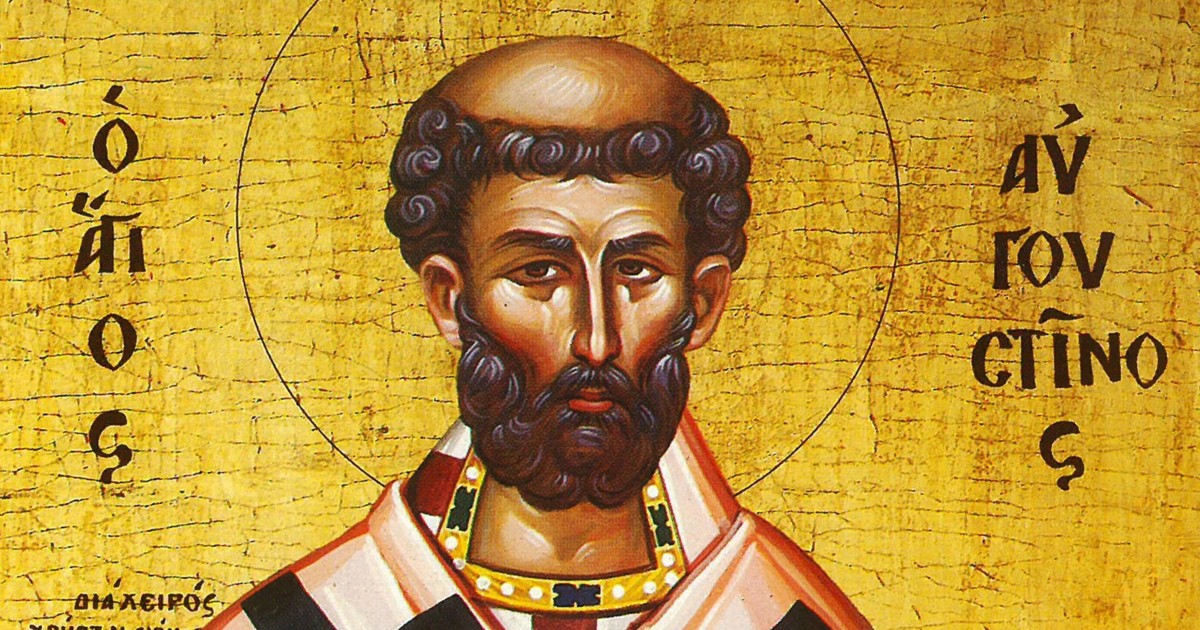
St. Augustine was a 4th and 5th-century leader in the early Christian Church, known for his profound influence on Christian theology and Western philosophy. Before his conversion, he led a worldly life characterized by ambition and a quest for meaning. His journey to faith, shaped by personal struggle, deep study, and spiritual awakening, brought forth writings that still shape Christian thought today. As a bishop and theologian, his contemplative life produced rich insights on grace, truth, and the human heart. Here are some of his most inspiring and enduring quotes.
Photo credit: Public Domain portrait by Philippe de Champaigne

1. From Sinner to Saint St. Augustine Quote
“There is no saint without a past, no sinner without a future.”
This statement reflects Augustine’s belief in Christ’s ability to transform a person. As it is written in 2 Corinthians 5:17, “Therefore if any man be in Christ, he is a new creature: old things are passed away; behold, all things are become new.” Since St. Augustine changed his hedonistic behavior when he was 33 year old and afterward lived a life dedicated to Christ, he fully believed this statement out of personal experience. It is an inspiration to all of us who may not be living upright, Christian lives or who suffer guilt from a checkered past.
According to his autobiography, Confessions of St. Augustine, Augustine lived a promiscuous and privileged life as a young man. St. Ambrose, Augustine’s mentor at the Milan parish where Augustine taught rhetoric, convinced the intellectually gifted Augustine that Christianity was the only true religion. Though Augustine accepted Christ in his mind, he was slow to live a Christian life and abandon his worldly lifestyle.
Finally, on Easter Sunday in the year 398, he acknowledged Christ as his personal savior and was baptized. He committed the rest of his life to being a "servant of God." This resolution included leaving the relationship he had, living with a woman and their son, and becoming celibate.
Photo credit: St. Augustine/Public Domain

2. Family Values St. Augustine Quote
"Peace in society depends upon peace in the family.”
This quotation is also based on St. Augustine’s personal experience. Like many successful people, St. Augustine was blessed with an outstanding mother. Her influence on his life influenced his great achievements in his church and his community. His mother Monica followed the scripture’s advice to “raise up a child in the way he should go, and he will not part from it” (Proverbs 22:6). She nurtured Augustine’s spiritual beliefs from an early age. Though in an “unyoked” marriage with a nonbelieving husband (who converted to Christianity on his deathbed), Augustine’s mother prayed for her son before he was born and enrolled him in early religious instruction. His mother continued to support him when he was a young adult; when he moved to Rome to teach, Monica moved near him and continually prayed for him.
Eventually, he brought his personal life into obedience to God. As a baptized Christian called to become a priest, his dedication to the church and formation of monastic communities fulfilled his mother’s prayers for his spiritual life. She rejoiced before her early death that her son had become a Christian and dedicated his life to the church. Augustine lived on to shape the theology of Christianity, extending the reach of his own spiritual ideas and Christian upbringing into society.
Photo credit: ©Unsplash/Matt Hoffman

3. The Timeless Gifts of a Great Mind and Spirit St. Augustine Quote
“What you are is God’s gift to you, what you become is your gift to God.”
St. Augustine’s life is an example to Christians to use their gifts as an act of worship and thanks to God, whether it be teaching, healing, helping, or guiding others. The combined gifts of people actively serving builds up the body of Christ. As it says in 1 Corinthians 12: 7-8, and 11, “Now to each one the manifestation of the Spirit is given for the common good. To one there is given through the Spirit a message of wisdom, to another a message of knowledge by means of the same Spirit” (1 Corinthians 12:7-8 and I Corinthians 12: 27, 29-31). In Augustine’s long and productive life, he used his gifts of knowledge and wisdom to build up the church and enlighten the secular world.
Augustine freely acknowledged that his intellectual prowess was a gift from God; he was cognizant that, “All these are the work of one and the same Spirit, and he distributes them to each one, just as he determines” (1 Corinthians 12:11). His most lasting contribution to Christianity is writing over 200 books and thousands of sermons. Besides publishing his thoughts, Augustine served as a priest, officiated in civic affairs, and traveled to church councils in North Africa 40 or 50 times in 35 years. He was indeed an active servant of God after his baptism.
Photo credit: ©Getty Images/shuang paul wang

4. A Loving Soul in Service to Others St. Augustine Quote
“What does love look like? It has the hands to help others. It has the feet to hasten to the poor and needy. It has eyes to see misery and want. It has the ears to hear the sighs and sorrows of men. That is what love looks like.”
In this quotation, St. Augustine encourages us to follow Christ’s example of charitable giving to those in need. This quotation calls to mind the message of Matthew 25:37-40 in which Jesus warns his followers that they will receive justice in eternity according to how they treated the unfortunate on earth. As Jesus explains to His disciples, “Then the righteous will answer him, ‘Lord, when did we see you hungry and feed you, or thirsty and give you something to drink? When did we see you a stranger and invite you in, or needing clothes and clothe you? When did we see you sick or in prison and go to visit you?’ The King will reply, ‘Truly I tell you, whatever you did for one of the least of these brothers and sisters of mine, you did for me.’”
While on earth, Jesus embodied the love of God, ministering to miserable people on the fringes of society. Jesus saw need and healed people in body and soul. St. Augustine captured the spirit of the merciful acts of God and Jesus when he wrote, "He who is filled with love is filled with God himself.”
Photo credit: ©GettyImages/Zinkevych

5. The Power of Praise through Song St. Augustine Quote
“To sing is to pray twice.”
This quotation was posted on the bulletin board in the choir room at my church. Indeed, after playing the piano or singing, my spirit was lifted from the joy of praising God through choir anthems and hymns. I felt my prayers had been answered, though I couldn’t put into words exactly what prayers were answered.
Music’s freedom from a physical form, appealing only to our ears and hearts, moves us by stirring up our emotions.
The music performed in worship at the church in Milan affected St. Augustine and led to his spiritual awakening. He had already accepted Christ’s sovereignty on an intellectual level. Worship songs touched his soul. His logical mind “drifted toward faith” under the influence of beautiful melodies.”
Music has the power to touch our souls and remains an integral part of worship. As St. Augustine expressed, music sends a prayer from our heart to God.
Photo credit: ©GettyImages/arkira

6. A Whole Christian Life St. Augustine Quote
"A Christian is a mind through which Christ thinks, a voice through which Christ speaks, and a heart through which Christ loves.”
St. Augustine understood how to live a balanced Christian life, as he outlines in the three areas he lists in this quotation. We can witness his attention to each of these aspects in his range of ideas and practices as a father of the church.
St. Augustine was “a mind through which Christ thinks.” He was a scholar, well versed in philosophy and theology. His studies eventually gave him inspiration to write his own beliefs in timeless prose in a large collection of books and sermons that inspire modern thinkers.
Augustine also had “a heart through which Christ loves.” He experienced the love of a family and community. He was blessed in his family of origin with a mother who was passionate about his Christian soul. He also knew love within his community of brethren in monasteries. And he loved his parishioners in Hippo, as well as his fellow clergy in the region.
St. Augustine advocated for social justice—living life with “a hand through which Christ helps” when he stated that “Charity is the root of all good works.” His writing and participation in civic affairs in Hippo are evidence of his love for his secular brothers and sisters.
May these quotes by this Christian convert and leader of the church inspire and encourage you in your own journey of faith.
Photo Credit: ©Getty Images/dmf87

Originally published Thursday, 23 January 2025.
